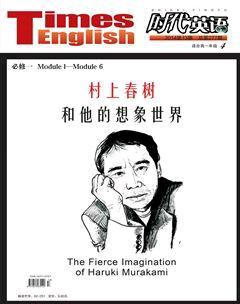時代新詞
Lawnmower parents 割草機父母
The lawnmower parent comes as well-intentioned parents increasingly tring to clean the problems from their childrens lives.
Instead of hovering over their children closely monitoring them as helicopter parents are said to, lawnmower parents get out in front of their children to try and clear the way for them. They try to remove obstacles that children might need to face.
Constant monitoring, overscheduling and protecting children from their own problems can come at a cost. Overprotection may be contributing to the rising number of children who have anxiety disorders.
越來越多心懷好意的父母試圖掃清孩子生活中的一切障礙,于是“割草機父母”就出現了。
“割草機父母”不像“直升機父母”那樣整天盤旋在孩子頭頂密切關注他們的一舉一動,而是隨時趕在孩子前面,幫助他們掃清道路上的障礙。他們想要掃清孩子可能會面臨的所有障礙。
持續監控、為孩子制訂過多計劃、不讓孩子自己面對問題,這些做法最后都可能導致不良后果。過度保護可能是導致越來越多孩子有焦慮癥的原因之一。
Peer pressure 同伴壓力
Peer pressure can happen when we are influenced to do something we usually would not do, or we are stopped from doing something we would like to do. This may be because we want to be accepted by our peers.
A peer can be anyone you look up to or someone who you would think is an equal in age or ability. A peer could be a friend, someone in the community or even someone on TV. You may experience peer pressure as you live up to either the individuals or groups expectations, or follow a particular fashion or trend.
我們受同輩影響做一些我們平時不會做的事情,或者因為同伴而不再做我們原本喜歡做的事情,這就是“同伴壓力”。我們之所以會受影響是因為我們想要得到同伴的認可和接受。
影響我們的同伴可能是你仰慕的一個人,也可能是跟你同齡或實力相當的某個人。可以是你的朋友,也可以是同一社區的一個人,或者是電視上的什么人。當你為了達到某人或者某個群體的期許,而追逐某種時尚風潮時,你可能就在經受“同伴壓力”。
Idle car owners 捧車族
Idle car owners are the car owners who rarely get behind the wheel of their cars because of rising petrol, insurance and registration costs. Their cars park in parking lots or on streets most of the time, only being used at weekends or during holidays and vacations.
Having a car is convenient for commuting or taking trips. But nowadays, some private car owners are leaving their cars in the garage, driving as little as possible. Surveys show that ten percent of private car owners in Beijing have become “idle car owners”.
Many factors, like traffic, economic status, and parking fees, have restricted peoples driving. The deterioration of these conditions has resulted in rising driving costs. Improved public transportation is another factor leading people to drive less.
所謂“捧車族”就是那些因為油費、保險、登記費用上漲而極少開車的有車族。他們大多數時間把車停在停車場和街道上,只有在周末或者節假日才開車出行。
擁有車確實便于上下班及休閑出行。但是如今,一些私家車車主把他們的車留在車庫里,盡量少開車。調查顯示,北京10%的私家車車主成為“捧車族”。
交通、經濟狀況、停車費用等很多因素限制了人們開車。這些條件的惡化導致開車成本上漲。公共交通改善也是人們少開車的另一個原因。
Data shadow 數據影子
A data shadow refers to the sum of all the small traces of information that an individual leaves behind through everyday activities. A data shadow is a minute pieces of data created when someone emails, updates social media profiles, swipes a credit card, uses an ATM, and so on. The concept of a data shadow has become a serious concern because it is difficult to control who is looking at a persons data shadow, what conclusions they are drawing and what actions they are taking based on those conclusions.
This can happen when an employer, for example, fires an employee based on his or her Facebook friends or photos. Data privacy laws exist and more are being created to prevent abuse of a persons data shadow. Unfortunately, privacy legislation generally lags behind companies ability to collect, compile and analyze data.
一個人日常活動留下的各種信息痕跡的總和就是“數據影子”。發送電郵、更新社交網站檔案、刷信用卡、使用自動取款機等行為產生的點滴數據構成一個人的“數據影子”。這個概念開始引起關注是因為很難控制哪些人在查看個人的“數據影子”,他們會從中得出什么結論,以及他們會在此結論基礎上采取何種行動。
比如,某個老板可能以某個員工在社交網站上的朋友或照片為由將其開除。我們已有一些關于數據隱私的法律,并且為了防止個人“數據影子”被濫用,還有更多法律正在制定當中。不幸的是,有關隱私保護的立法速度總是趕不上某些公司收集、整編和分析數據的步伐。

